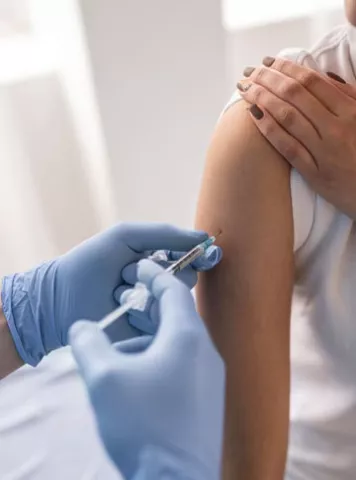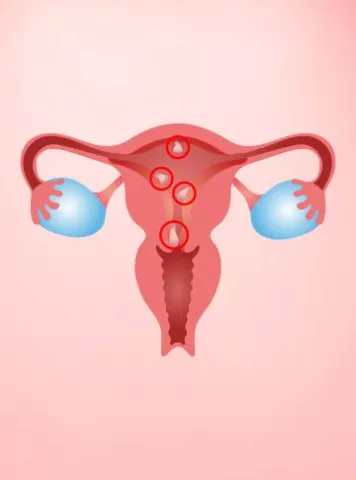Infertility is a common problem affecting 17-20 percent of couples. It can be defined as the incapacity to fulfil pregnancy after a year of sexual intercourse with no contraceptive measures taken. Lifestyle factors, like alcohol consumption and cigarette smoking, have been reported to affect male fertility. Binge Drinking apparently targets sperm morphology and sperm production. Smoking releases toxins which primarily hamper sperm motility and seminal fluid quality. Progressive deterioration in semen quality is directly proportional to quantity of alcohol intake and cigarettes smoked. To avoid their detrimental effect on male fertility and to bring improvement in the fertility outcome we recommend few lifestyle factors modifications like cigarette smoking, use of alcohol and illicit drugs, psychological stress, obesity, food, and caffeine consumption.
High alcohol consumption and heavy smoking can cause lower testosterone level and alter sexual function. Testosterone is involved directly in almost all components of the male reproductive process and a decrease in testosterone correlates with a range of clinical problems including reduced fertility, reduced semen volume, impotence and inability to get an erection.
Impotence, testicular atrophy, gynecomastia, and loss of sexual interest is often associated with alcoholism in men. Heavy alcohol intake produces significant spermatozoon morphological changes which include breakage of the sperm head, distention of the midsection, and tail curling.
In human’s, alcohol produces a significant decrease in the percentage of motility, straight-line velocity, and curvilinear velocity of sperm and also significant decrease in the number of spermatozoa with normal morphology with an increase in irreversible tail defects. Mean testicular volume of heavy-drinkers was slightly, but significantly lower compared with that of non-drinkers. Thus, alcohol induced reduced levels of testosterone not only hampers their normal morphological development and maturation of spermatozoa producing significant Teratozoospermia (defects in morphology), it also slows down the sperm production by testicular germ cells – Oligozoospermia. The direct toxic effect of alcohol on the testis leads to decreased seminiferous tubular function, delayed seminal fluid liquefaction and low sperm motility. Daily alcohol consumption decreases normal sperm morphology and no correlation has been found with the amount or the duration of alcohol consumption.
Smoking is a lifestyle hazard for both active and passive smokers. Smoking causes DNA damage which leads to a higher risk of abortions, birth defects, and childhood cancers in the offspring. Asthenozoospermia (decreased motility of sperms) appeared to be a ‘premier’ factor contributing to the infertile status of a male. However viable and morphologically normal spermatozoa may be, if they are immobile, showing linear forward motion in the seminal fluid, they will fail to fulfill their prime function of traversing the complex route through female genital tract, to seek and fertilize an ovum.
There is no “safe” quantity of cigarette smoking as reflected by predominance of asthenozoospermia in occasional smokers. Heavy and moderate smoking reduce semen quality further by also adding Teratozoospermia component. Smoking causes reproductive hormone disorders, impairment in spermatogenesis and maturation of sperm, and causes loss of functionality of spermatozoa. Toxins released due to smoking directly interact with seminal fluid components and the accessory glands, which contribute their secretions to the seminal fluid, leading to its increased viscosity, reduced seminal volume and delayed liquefaction time, manifesting as Asthenozoospermia. Increased quantities of ROS have been shown to be detrimental to the DNA of spermatozoa, thus producing negative effect on the viability and morphology of spermatozoa and was directly proportional to number of cigarettes smoked.
Sexual disorders have been reported in men who are chronic alcoholic with the prevalence ranging from 8% to 58%. Chronic alcoholism causes reduced sexual stimulation, inability to enjoy orgasm, and retarded ejaculation. A continous testicular damage and the resultant decrease of sex hormones leads to a loss of secondary sexual characteristics and the onset of erectile dysfunction and infertility. Alcoholics and smokers showed decreased libido and erectile impotence due to decreased levels of testosterone. They were also co associated with psychogenic causes such as Socio-cultural factors, Intrapsychic conflicts. Interpersonal or Relationship Problems, Educational & Cognitive Factors and Iatrogenic.
Sexuality continues to be an integral part of being human; encompassing love, affection and sexual intimacy thereby contributing to healthy relationships as well as individual well-being. Alcoholism and smoking lead to sexual inadequacy which refers to sexual dysfunction, some specific disruption of the ‘Sexual Response Cycle’, in men it encompasses desire / appetite, excitement or arousal – plateau, orgasm and resolution phases.
Sexual Dysfunctions/Inadequacies Encountered
1. Hypoactive or Inhibited Sexual Desire
2. Sexual Arousal Disorders (Inhibited Sexual Excitement)
3. Sexual Aversion Disorders: Erectile Dysfunction
It is characterized by recurrent and persistent partial or complete failure to attain or maintain an erection through completion of the sex act or recurrent or persistent lack of pleasure or excitement during sex.
4. Orgasm Disorders: Premature Ejaculation
It is defined as recurrent ejaculation with minimal sexual stimulation before the man wishes it to occur. Masters & Johnson defined a person as ‘premature ejaculator’ if he cannot control his ejaculatory process for a sufficient length of time during intravaginal containment to satisfy his partner in at least half of their coital connections. Premature ejaculation has been recognized almost always as psychogenic, secondary to anxiety, conditioned by early sexual experiences, guilt and hostility towards the partner.
The preventable factors, the social costs of male infertility, and the resulting burden on public health need to be identified and overcome.
Chronic alcohol consumption and heavy smoking have a detrimental effect on male reproductive hormones and on the quality of semen, which, in turn, will make people who are addicted impotent and sterile. Infertility specialist should counsel their patients about the ill effects of smoking on their fertility status and should advise maintaining a healthy lifestyle, avoiding smoking and alcohol consumption, if they want to reproduce and lead a normal sexual life.
Articles
2023


World AIDS Vaccine Day 2023: Can HIV & AIDS affect fertility or your infant’s health?
World AIDS Vaccine Day is observed every year on the 18th of May to create awa...
2023


Male Infertility Infertility Tips
Hyperspermia: Causes, Symptoms, Diagnosis & Treatment
What is Hyperspermia? Hyperspermia is a condition where an individual produ...


Guide to infertility treatments Infertility Tips
पीआईडी: पेल्विक इनफ्लैमेटरी डिजीज और निःसंतानता
पीआईडी - पेल्विक इनफ्लैमेटरी �...
2022


Infertility Tips Uterine Fibroids
Endometrial Polyps (Uterine Polyps)
What are Endometrial Polyps (Uterine Polyps)? Endometrial polyps, often ref...
2022


Female Infertility Infertility Tips
Why do You Need Fertility Treatment
As we all know infertility rate is constantly rising in our society day by day...
2022


Cesarean Section Vs Natural Birth
Surrogacy centers in Delhi and Infertility centers in Pune state that there ar...
2022


ನಿಮಗೆ ಹುಟ್ಟಲಿರುವ ಮಗುವನ್ನು ಅರ್ಥಮಾಡಿಕೊಳ್ಳುವುದು: ಗರ್ಭದಲ್ಲಿ ಮಗು ಹೇಗೆ ಬೆಳೆಯುತ್ತದೆ!
ವೀರ್ಯವು ಮೊಟ್ಟೆಯನ್ನು ಭೇಟಿಮಾಡ�...
2022


Diet Chart for Pregnant Women: The Right Food for Moms-To-Be
Pregnancy Food Chart 1. The daily diet must include the right amount of pro...
2022


Can i become pregnant while my tubes are tied?
Pregnancy is one of the most important phases in women’s life and is conside...
Pregnancy Calculator Tools for Confident and Stress-Free Pregnancy Planning
Get quick understanding of your fertility cycle and accordingly make a schedule to track it















